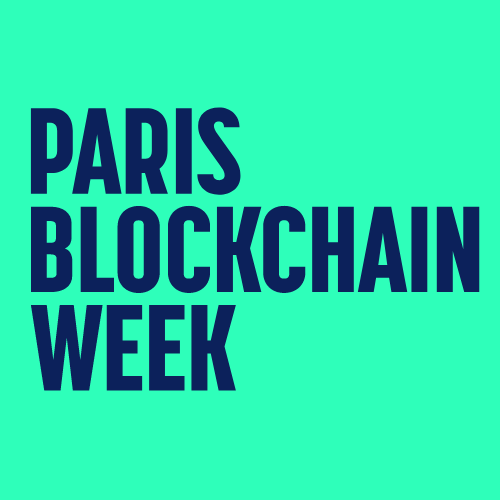
Paris Blockchain Week lived up to its lofty expectations with sensational panels, illuminating workshops, and a star-studded lineup of crypto leaders.
For three days, Le Carrousel du Louvre hosted thousands of blockchain professionals who discussed crypto and the future of the blockchain industry.
Never missing an opportunity to get our hands in the engine, the Dailycoin team was on-site to speak with and hear from some of the crypto space’s brightest minds.
Sponsored
As the curtains close on a remarkable event, DailyCoin reporter Finn Miller distills some of Paris Blockchain Week’s biggest talking points.
Table of Contents
- What Is Paris Blockchain Week?
- Paris Blockchain Week: Biggest Takeaways
- 1. Centralization vs Decentralization is Holding the Industry Back
- 2. A Spot Bitcoin ETF was just the Beginning
- 3. Slowly but Surely, Regulation is Bringing Clarity to the Crypto Space
- 4. Tokenization, RWAs Are the Biggest Vector for Adoption in 2024
- 5. Tribalism Needs to Die for the Industry to Move Forward
- On the Flipside
- Why This Matters
- FAQs
What Is Paris Blockchain Week?
One of the most significant events in the European crypto calendar, Paris Blockchain Week is a conference attracting teams and individuals from every corner of the blockchain industry.

This year’s speakers and contributors included some of the most influential figures in the space, including Binance CEO Richard Teng, Ripple Labs CEO Brad Garlinghouse, and prominent investor Tim Draper. They shared their thoughts on the state of the crypto space and what they foresaw in the coming bull run.
Paris Blockchain Week: Biggest Takeaways
What were some common trains of thought and unifying beliefs shared by the industry leaders?
1. Centralization vs Decentralization is Holding the Industry Back
The crypto market is founded on decentralization, privacy, and self-custody principles. In turn, these fundamental pillars gave birth to all our favorite “De”s, including DeFi, DeSo, and now DePINs.
While decentralization and the freedom of self-custody and asset control brought millions into the crypto space, experts argue that they’re now holding the industry back from seeing higher adoption rates.
Given the risk they pose to anti-money laundering laws and terrorist funding schemes, regulators are apprehensive about private wallets and mysterious, anonymous transfers.

As expected, institutional investors and corporate clients are wary of unregulated platforms. This means that even if blockchain solutions might benefit their business, they’re unable to dip their feet into the waters of public blockchains.
Corporate clients will continue to avoid public blockchains, opting instead to use private blockchains to maintain their control and privacy over their proprietary data. To that end, Antoni Zolciak, co-founder and CMO of Aleph Zero, is “exploring the relationship between public chains and enterprises and how they can co-exist.”
Ultimately, corporate clients don’t want to use public, decentralized chains. Industry experts argue that striking a compromise between what institutional and corporate users want and what blockchain purists have built is the only way the industry can collectively move forward.
2. A Spot Bitcoin ETF was just the Beginning
The approval of a spot Bitcoin ETF was a landmark moment for the crypto space. It brought much-needed validity and billions of dollars of inflows into the market.
Proposing bullish price targets, Tim Draper theorized that we might see BTC go as high as $250,000 USD off the back of the Bitcoin halving and the success of the Bitcoin ETF.

Heading into the altcoin market, Ripple Labs CEO Brad Garlinghouse believes a spot XRP ETF is on the horizon. He argues that XRP’s long-winded legal battle with the SEC has helped establish regulatory clarity around the digital asset, making it a prime candidate for a spot ETF in the future.
Meanwhile, Vaneck CEO Jan Van Eck told CNBC that, despite having filed for a Spot Ether ETF alongside asset managers like BlackRock and Fidelity, he expected the SEC would reject these filings.
3. Slowly but Surely, Regulation is Bringing Clarity to the Crypto Space
Regulation is truly the double-edged sword of the crypto space. On one hand, regulators have been criticized for stifling innovation and suffocating the growth and expansion of the blockchain industry.
On the other hand, institutions and key corporate players will refuse to enter the market until clear and distinct guidelines regarding crypto regulation are established.
Progress is slow, but regulatory clarity is giving emerging crypto businesses a safe and secure environment in which to launch their platforms in areas like the UAE and Europe. Europe’s MiCA laws have also presented a united approach to regulation, promising to make the continent a hub of crypto evolution in the future.
That doesn’t mean blockchain builders and traders can do whatever they want. Verena Ross, Chair of the European Securities and Markets Authority (ESMA), posits that while the new laws are a step forward, we shouldn’t “assume MiCA creates a safe haven.”
Market participants are encouraged to familiarise themselves with the new regulations to avoid acting outside the law.
4. Tokenization, RWAs Are the Biggest Vector for Adoption in 2024
The tokenization of real-world assets (RWAs) is one of the hottest narratives for the upcoming cycle. Larry Fink, CEO and Chair of BlackRock, believes that the tokenization of financial assets is the next step in TradFi, and venture capital firms have laid their bets accordingly.
The belief is that tokenizing real-world assets will result in greater flexibility, faster settlement speeds, and more affordable costs to traditional financial assets. Paul Wong, Director of Product, CBDCs, and Institutions at Stellar Development Foundation, argues that “Tokenization can generate annual cost savings of twenty billion dollars in global clearing and settlement costs.”
But that’s just the tip of the iceberg. Emerging blockchain startups are tokenizing all kinds of things outside of financial markets. SunContract is tokenizing electrical solar energy and distributing it to digital asset holders, while Chateaushi is giving their users fractionalized ownership of heritage castles in France.
5. Tribalism Needs to Die for the Industry to Move Forward
Finally, maximalism, tribalism, and the one-chain-to-rule-them-all mentality are on the way out. Stubbornness and the refusal to adopt and acknowledge rival chains have caused unnecessary infighting within crypto camps for years. While this has bred fierce competition and pushed leading blockchains to new heights, it’s also hamstrung crypto adoption.
Instead of arguing amongst ourselves about which blockchain is the best to build and develop on, the focus is starting to shift. Industry experts are turning their gaze outwards, and formulating how best to bring people from outside the crypto world into the space.
Brad Garlinghouse said it best: “It isn’t about the 100,000 developers already working on Web3. It’s the 20+ million developers who are yet to work on Web3 that’s truly exciting.”
Bringing new minds and fresh ideas into the blockchain industry is the best way forward and will undoubtedly encourage innovation in what is already a cutting-edge field.
On the Flipside
- For the first time in its history, Bitcoin broke all-time highs before the Bitcoin halving. Market participants are mildly euphoric and showing signs of greed, making dramatic price predictions and assuming this cycle is only just beginning.
Why This Matters
Paris Blockchain Week is one of the biggest crypto events in Europe. It provides an excellent opportunity for blockchain enthusiasts and thought leaders to share their ideas and discuss the state of the market.
FAQs
Charlie Meraud co-founded Woorton, the Paris Blockchain Week, and the French Digital Asset Association.
Some of the biggest name speakers at Paris Blockchain Week 2024 included Brad Garlinghouse (Ripple Labs), Richard Teng (Binance), Tim Draper (Draper Associates), Ryan Selkis (Messari), and Jan Van Eck (Van Eck).
